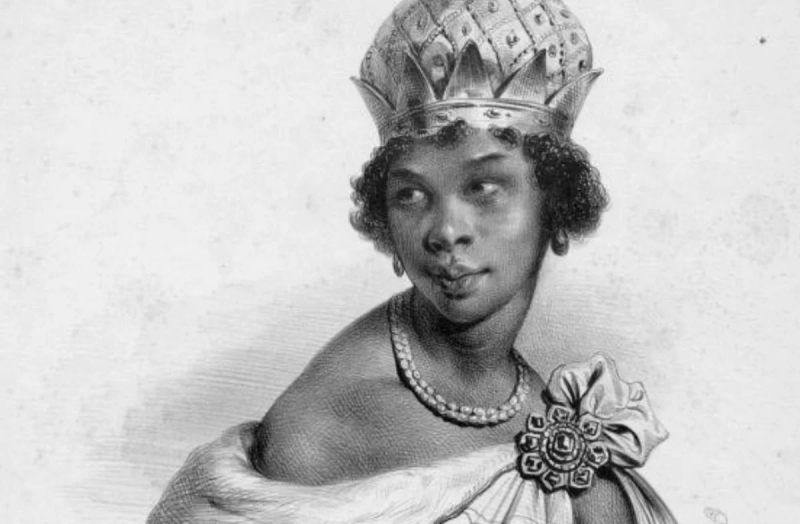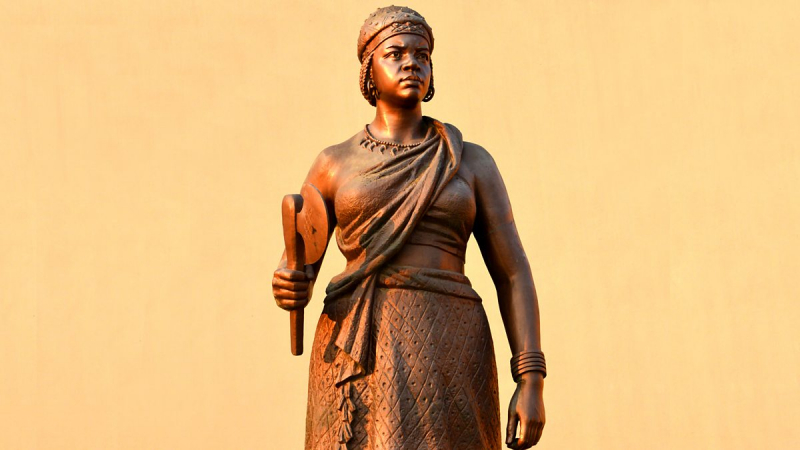Nzinga of Ndongo and Matamba
Nzinga Mbande (1583 - 1663) was Queen of the Ambundu Kingdoms of Ndongo (1624-1663) and Matamba (1631-1663), located in present-day northern Angola. Born into the ruling family of Ndongo, Nzinga received military and political training as a child, and as an ambassador to the Portuguese Empire, she demonstrated an aptitude for defusing political crises. She later ascended to power in Ndongo following the deaths of her father and brother, both of whom served as kings, and went on to conquer Matamba. She ruled during a period of rapid growth in the African slave trade and encroachment of the Portuguese Empire into South West Africa in an attempt to control the slave trade. During her 37-year reign, Nzinga fought for the independence and stature of her kingdoms against the Portuguese.
Among the most important historical figures in Angola, Nzinga has become a historical figure in Angola and the wider Atlantic Creole culture in the years since her death. She will be remembered for her intelligence, political and diplomatic acumen, and military strategy.
She is remembered in Angola today as the Mother of Angola, the negotiator, and the protector of her people. She is still regarded as a remarkable leader and woman throughout Africa, for her political and diplomatic skills, as well as her brilliant military tactics. Accounts of her life are often romanticized, and she is seen as a symbol of the struggle against oppression. Nzingha eventually managed to shape her state into one that tolerated her authority, though surely the fact that she survived all attacks on her and built up a strong base of loyal supporters helped. While Njinga clearly had not overcome the idea that females could not rule in Ndongo during her lifetime, and had to 'become a male' to retain power, her female successors faced little difficulty in being accepted as rulers. Queens ruled for at least eighty of the 104 years that followed Njinga's death in 1663. Nzingha is a role model for Angolan women of all generations. Women in Angola today have remarkable social independence and can be found in the army, police force, government, and public and private economic sectors. During the civil war, Nzingha was embraced as a symbol of the People's Movement for the Liberation of Angola.
A major street in Luanda is named after her, and a statue of her was erected in Kinaxixi on a grand square in 2002 to commemorate the country's 27th anniversary of independence. Angolan women frequently marry near the statue, particularly on Thursdays and Fridays.







